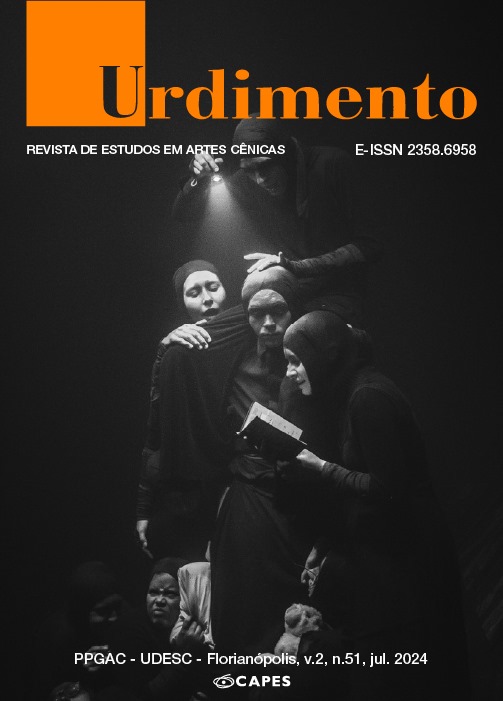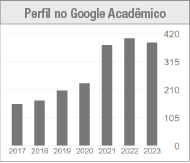Sensing theories: notes on affective literacy
DOI:
https://doi.org/10.5965/1414573102512024e0109Keywords:
affect, performance, potency, discernmentAbstract
This article considers the performing arts, particularly theatre, as practices of feeling that do not limit themselves to offering an affective experience produced by scenic/theatrical effects but instead have the function of potentiating the insight of how and why one feels what one feels. Approaching two recent productions (“Quis saber quem sou”, by Portuguese director Pedro Penim and “Feijoada”, by Brazilian choreographer Calixto Neto), the text sketches out the concept of affective literacy as a way of recognizing and understanding that what one feels results from a social and cultural configuration of affects, which is historically situated. Affective literacy aims at an ethical empowerment of our choices and actions.
Downloads
References
CRARY, Jonathan. Techniques of the Observer. On Vision and Modernity in the Nineteenth Century. Massachusetts: The MIT Press, 1992.
CRARY, Jonathan. Suspensions of Perception, Cambridge: MIT Press, 1999.
FRANCK, Georg. «Ökonomie der Aufmerksamkeit», Merkur 534/535 (Setembro/Outubro), p. 748–761, 1993.
SERRA, José Pedro. Pensar o Trágico. Categorias da Tragédia Grega, Lisboa: FCG-FCT, 2006.
Published
How to Cite
Issue
Section
License
Copyright (c) 2024 Urdimento: Revista de Estudos em Artes Cênicas

This work is licensed under a Creative Commons Attribution 4.0 International License.
Copyright Statement
The articles published by the magazine are free to use. The copyright is all assigned to the magazine. The articles whose authors are identified represent the expression from the point of view of their authors and not the official position of the journal Urdimento. The author (s) undertakes whenever publishing material relating to the article published in Revista Urdimento mention the said publication as follows: This article was originally published by Urdimento magazine in its volume (put the volume), number (put the number) in the year of (put the year) and can be accessed at:
http://www.revistas.udesc.br/index.php/urdimento
This work is licensed under a Creative Commons Attribution 4.0 International License.




